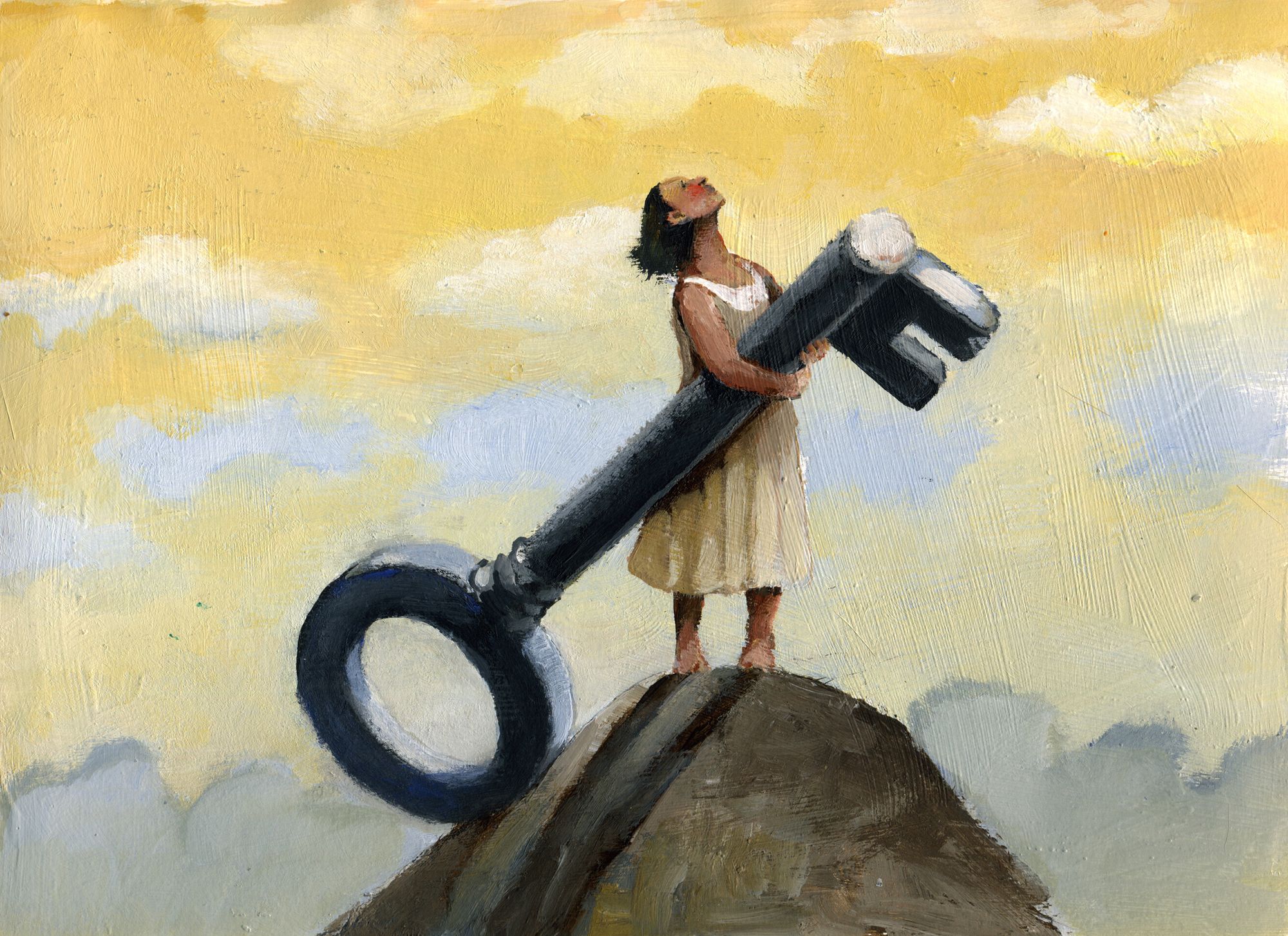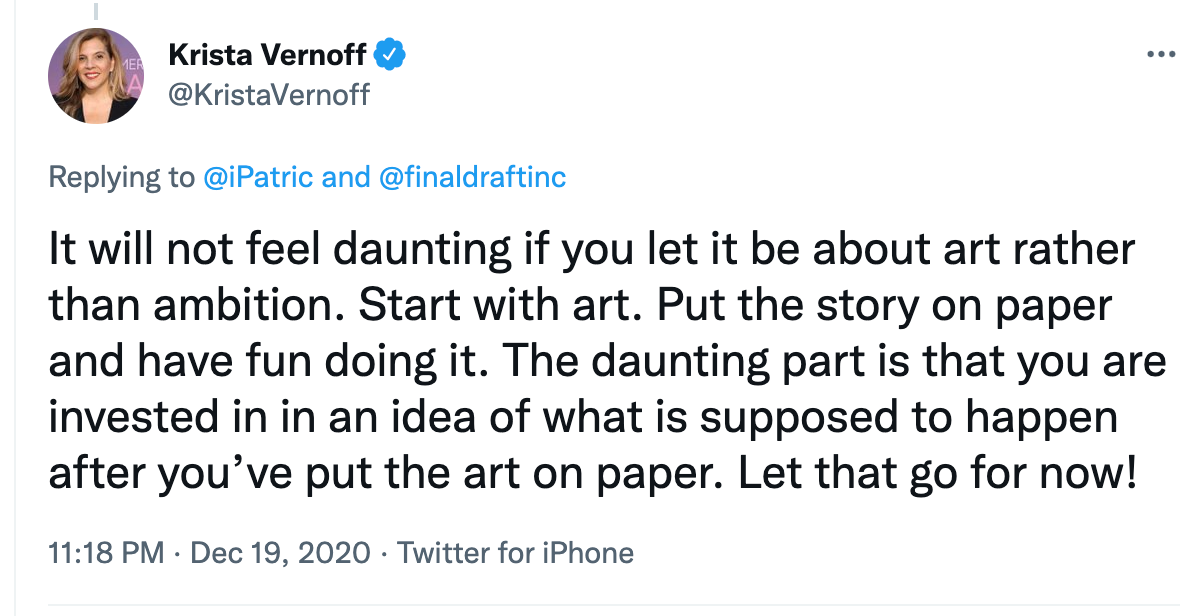
Balancing Art and Ambition
“I am a writer.”
How many times have you spoken those words, only to be met with, “Have you written something I would know?”
You stammer, “Um, well, no … it's complicated.”
My mind races to the writers I’ve met over the years who succeeded or simply quit, and what the differences might be in both circumstances.
I’m just going to say it:
Are you a hobbyist or a writer?
Let’s be clear, there is no right answer. I’m not slamming hobbyists. That’s often how we all start any endeavor. Our curiosity begs us to dip our toes in, and then we realize we actually have a gift, so we push deeper, fully immersing ourselves in the craft and ultimately defining ourselves as “writers.”
However, if you cling to the title “writer” but only occasionally put effort into your craft or quest for understanding the business, you’re setting yourself up for disappointment. Putting in the effort of a hobbyist yet expecting the results of a professional will never work.
Frankly, until you can identify which you are, you cannot create realistic goals.
As per Merriam-Webster:
Hobby: an activity done regularly in one's leisure time for pleasure.
Is it just me or did you all chuckle when you read “leisure time,” as if anyone working a day job while also pursuing art has any of that. But my point simply is, if you truly want to be a writer, as in a professional writer, you’re going to have to not only dedicate the time to create your art, but also be strategic. No one just wakes up a professional anything without a plan.
Professional: participating for gain or livelihood in an activity or field of endeavor often engaged in by amateurs.
Every professional was initially an amateur, so don’t beat yourself up simply because it’s taking more than a hot minute to achieve professional status. My personal belief is that it takes about eight years to really understand the complexities of a screenwriting career, both craft and business. I have no scientific proof of this statement other than my observations of thousands of writers over the past dozen years.
There is no such thing as an overnight success. As Matt Misetich, Partner at Pipeline Media Group, recently said in one of our podcasts, “You have to suck before you don’t suck.”
I agree. Wholeheartedly.
If we dive back into the dictionary and look up "art" and "ambition," the former has to do with human creativity and the latter, success and money.
Can you fully unlock your imagination if your mind is obsessed with success?
Embracing the hobbyist label, even temporarily, might actually help your overall goals. In fact, I’d argue that being candid about it will save you so much emotional grief. Your mind instantly shifts from the pressure of “I need to sell this script!” to “Wow, I had so much fun writing today!”
Imagine that. Emotionally supporting yourself instead of beating yourself up. Yeah, I'm unfamiliar with that concept, too, but I'm working on it.
For those who strive to sell a screenplay or write the next great American novel, it’s important to be realistic. Instead of setting the bar at “sold” perhaps readjust the bar to "create exceptional art." When you love your story, it shows on the page. But if you're writing something only because you think this is the one that can sell, that lack of passion will show, too.
Focus less on the sale and more on the craft, and watch what organically happens.
Before you sit down to write, take some time to search out inspiration and knowledge. Read the greats. If you haven't yet devoured Stephen King's On Writing, get on that. Pronto. He constantly reads, even in store checkout lines. Consuming art helps you create art.
His best advice, “Write with the door closed.”
What does that mean? Be raw. Be real. Don’t follow trends, but instead, dare to use your words to expose your fears. Challenge yourself to write outside your comfort zone. Sit at your keyboard and … pretend you’re a hobbyist.
When you make that subtle shift in your mindset, you liberate yourself from not only the pressure of producing, but also the pressure of the sale. Focus on the art. Period.
Yeah, yeah, I hear some of you reminding me that this Balls of Steel™ writer often preaches the importance of understanding the industry. I indeed firmly believe you can’t succeed at anything unless you know the world you’re trying to conquer.
So, how do you find the balance?
It’s simpler than you think. Center your efforts on concept. I know it’s cliché, but concept truly is king.
Before you churn out pages, this is when you put on your business hat. Take the time to deeply explore the idea for the story you want to write—know what stories an exec can actually sell as compared to what will only serve as a great writing sample. Push yourself to elevate your concept. Try to figure out how you can put a twist on it to make it original—something Hollywood has never seen before and didn’t even know they wanted until they read your logline and burst with excitement.
Do that work before you create the art.
That's the hard part—coming up with and plotting out the killer idea that both has a shot of success and also ignites your creativity, making you excited to write. Once you do that, then you can play in that world and have fun—just like a hobbyist.
When I’m in that zone, the sweet spot of a writer’s existence, my critical eye disappears. I’m simply lost in the words as they flow from my mind and onto the page. I'm not thinking about selling the story; I’m only enjoying birthing my art.
In order to get to that headspace though, a certain amount of retraining our brains is required.
In a gracious Twitter AMA thread from 2020, Krista Vernoff, showrunner of “Grey’s Anatomy” and “Station 19,” was asked a zillion questions, including how to handle the daunting feeling of opening up Final Draft software and staring at the blank screen.

Read that again “… invested in an idea of what is supposed to happen after you’ve put the art on paper.”
Sure, visualizing your dreams helps many writers stay focused, but when you allow the goal of “sell” to overshadow the art, you lose all perspective and often your ability to write with reckless abandon, poking at your wounds and those of your characters. The best way to put your unique voice into your writing is to be passionate about your concept.
Tune it all out. Close the door and have fun!
Every professional started as a hobbyist. The ones who stay in the game never lose that passion for discovery, not only of their art but also of themselves.
*Feature image by Cristina Bernazzani (Adobe)

